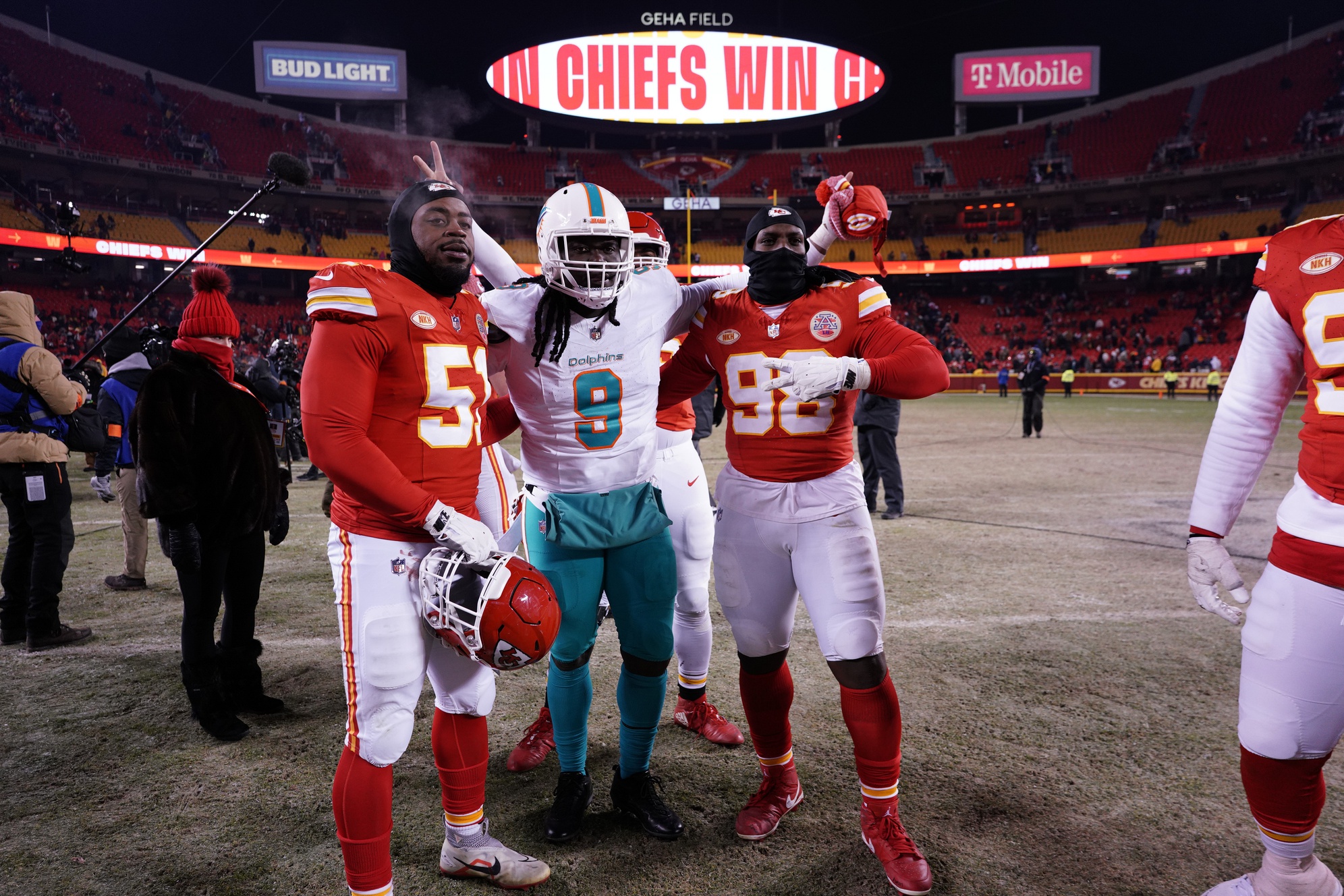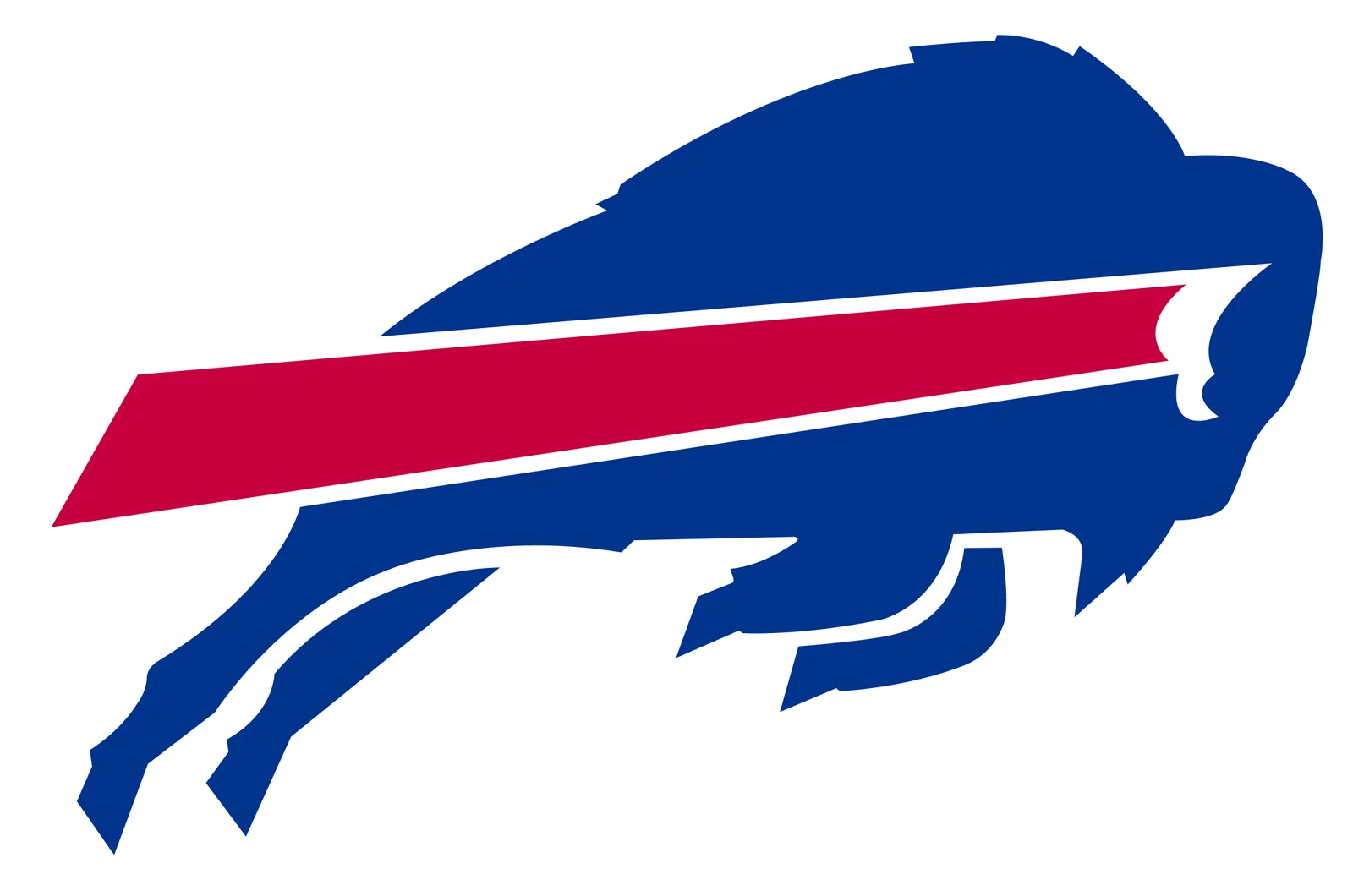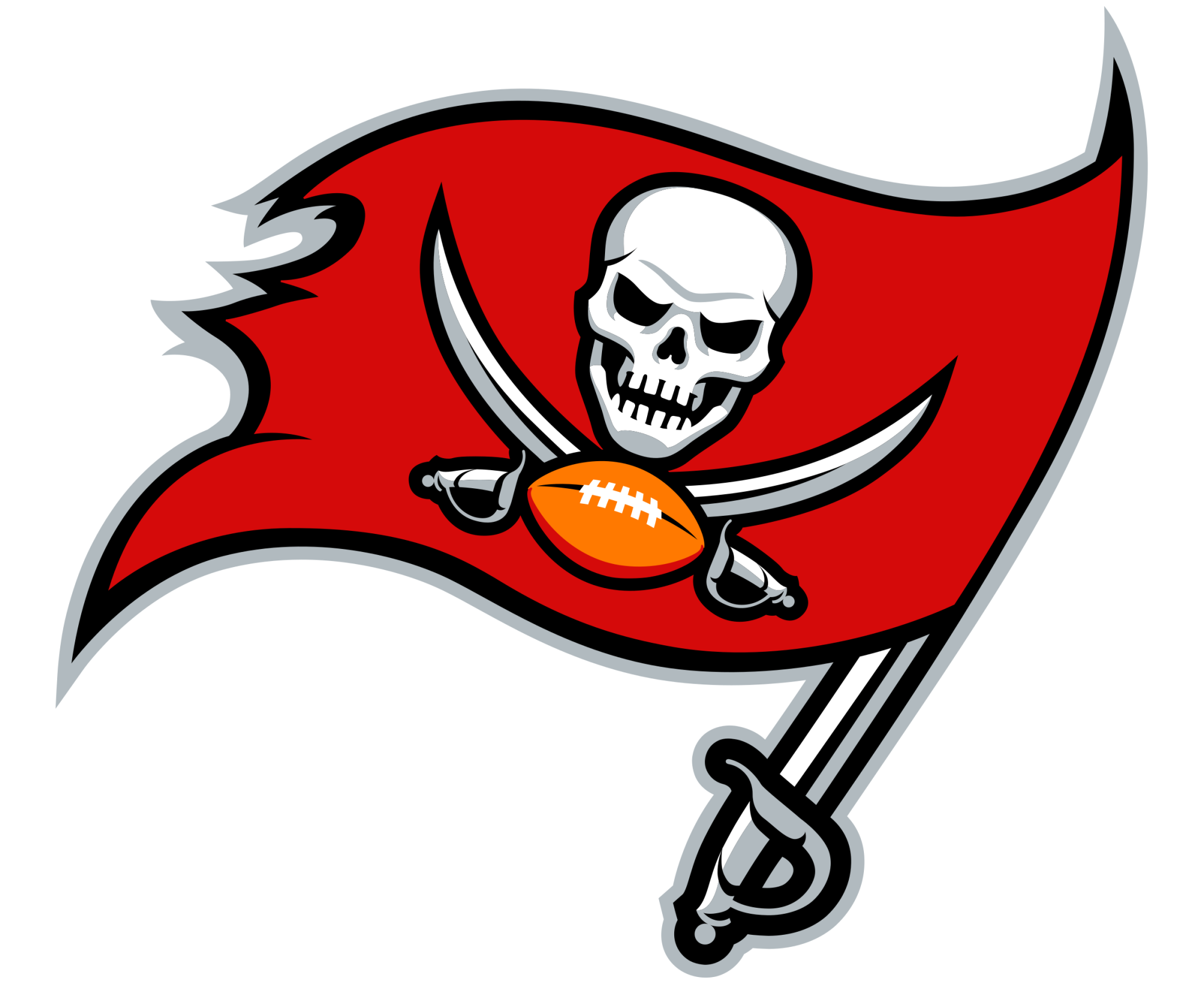The Dolphins’ Fatal Flaw Was A Failure To Adapt

Jan 13, 2024; Kansas City, Missouri, USA; Kansas City Chiefs defensive end Mike Danna (51) defensive tackle Tershawn Wharton (98) and Miami Dolphins linebacker Melvin Ingram (9) pose for a photo following the 2024 AFC wild card game at GEHA Field at Arrowhead Stadium. Mandatory Credit: Denny Medley-USA TODAY Sports
At the time of kickoff, the temperature at Arrowhead Stadium was -4 degrees, not including windchill. Unbeknownst to them, the Kansas City Chiefs and the Miami Dolphins were amidst the fourth-coldest game in NFL history. In a game where the Chiefs were favored to win by 4.5 points, the one silver lining for the Dolphins was that the conditions on the field were suboptimal for throwing the ball.
The Dolphins won the coin toss and elected to defer, so Patrick Mahomes and the Chiefs’ offense got the ball to start the game. My expectation was that Andy Reid would try to establish the run game with Isiah Pacheco early given the sub-zero temperatures. So I was surprised when the first three play calls were: pass, pass, pass. The first two ended up being incomplete. Mahomes overthrew an open Travis Kelce on first-and-10, and airmailed a checkdown pass to Rashee Rice on second-and-10. After those two incompletions, Mahomes found his groove and delivered a strike to Kelce over the middle for a first down.
It only took Mahomes two incompletions before he was able to adapt to the harsh conditions and throw an accurate football. The Chiefs proceeded to methodically march down the field with a balanced attack and they ended their opening drive with a touchdown as if it were 72 degrees and sunny outside. Adapt is the key word here, and the Dolphins’ inability to adapt to the situation like Kansas City was able to was the deciding factor in this game.
For some clarity, the word “adapt” can mean two different things. I expected that Kansas City would adapt to the blistering cold by changing their style of play. Instead, they were able to adapt to the wonky weather by giving Mahomes more passing attempts, which allowed him to get fully acclimated and overcome those challenges.
The Dolphins did neither of those things. Miami’s opening drive went like this: run for one yard, run for one yard, loss of five yards after a false start penalty, screen pass for six yards. Don’t get me wrong, trying to establish the run makes sense in this situation. Playing some good ol’ fashioned ground-and-pound football and asserting your dominance is not a bad idea. I even advocated for the Dolphins to use this approach in my last article. So is establishing the run game now all of the sudden a bad idea simply because it didn’t work the first time? Not necessarily!
Even though Miami likes to get Raheem Mostert and De’Von Achane heavily involved in the run game, I don’t think their identity is centered around being the toughest and most hard-nosed football team in the league. The Dolphins are not trying to emulate the Mike Vrabel-led Tennessee Titans by prioritizing grit. I think McDaniel wanted to emulate the San Francisco 49ers more than anything else. The Niners are a team that runs the ball a lot with Christian McCaffrey, but Brock Purdy is able to give defenses fits by getting the ball out quickly to his playmakers, and he is capable of operating in a pass-first offense.
Tua Tagovailoa is very similar to Purdy in that regard. These are two players who throw with great accuracy and anticipation to their skill players. So when it became clear that simply operating a run-first offense wasn’t working for Miami at the end of the first half, that’s when Mike McDaniel needed to make adjustments by being a little more aggressive in the passing game. It doesn’t matter that Tua threw a bad interception earlier in the game; the Dolphins were only down 16-7 to end the first half and were set to receive the ball to start the third quarter.
So how did the Dolphins respond on offense? On first-and-10, Miami ran a play-action pass attempt that ended up being a dropped checkdown in the flat to tight end Durham Smythe. On second-and-10, McDaniel called a screen pass to Mostert that gained five yards. Finally, on third-and-five, Tagovailoa was pressured immediately and scrambled short of the line to gain. Three and out! You’d think that the Dolphins would try to get the ball to their best playmakers, but they didn’t. Zero targets for Tyreek Hill and Jaylen Waddle on that drive, which is just unacceptable.
As a team, you either need to be tougher or more aggressive than your opponent. The Dolphins tried to play hard-nosed football against the Chiefs and they came up short in the first half. This is why McDaniel needed to adapt his strategy at halftime by calling more aggressive passing plays for Tagovailoa. Instead, McDaniel’s play calling became overly conservative, which prevented Tua from ever getting the chance to rally his team from behind.
To me, that was the biggest difference in this game. Andy Reid gave Patrick Mahomes the greenlight to get acclimated passing the football, and they were able to adapt to the cold weather and overcome those conditions. Whereas Mike McDaniel tried to protect Tua to the point where the Dolphins offense became anemic. That failure to adapt is what ultimately ended their season.
Up Next





